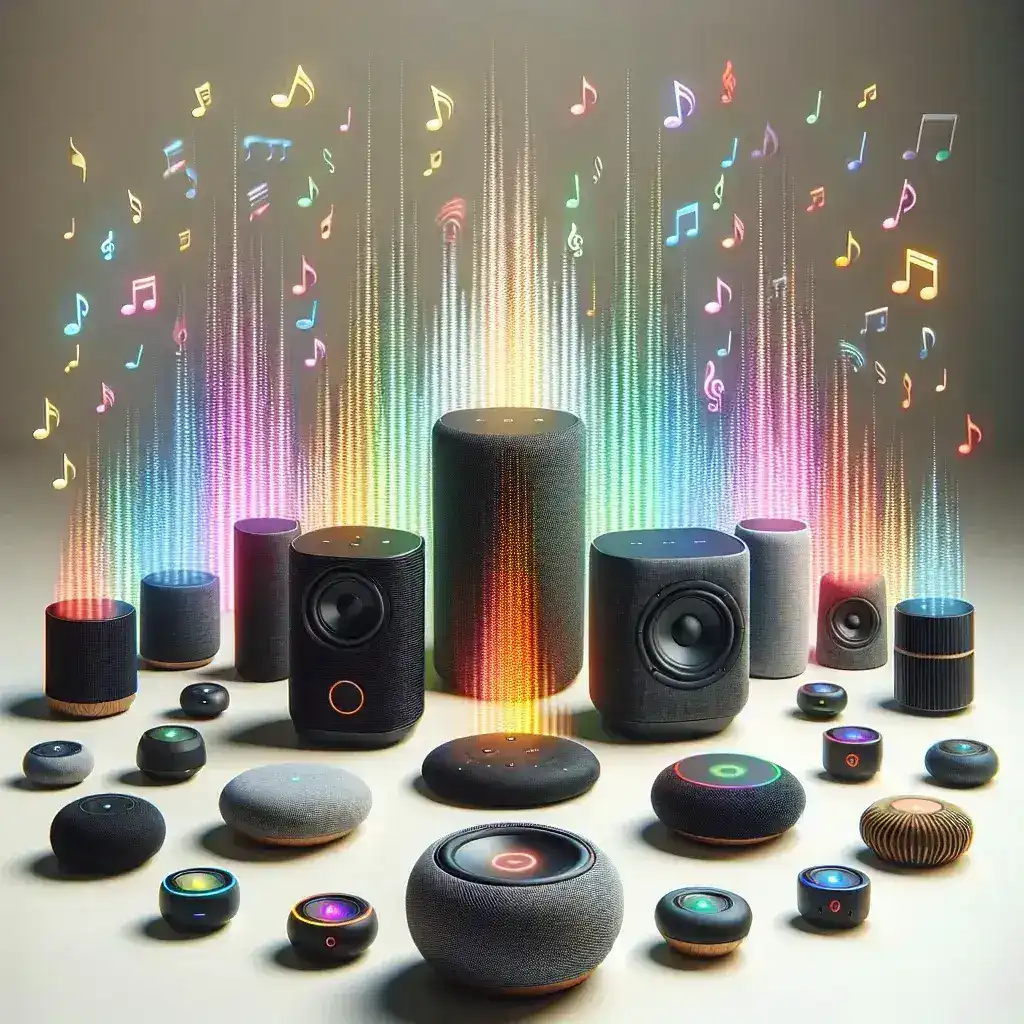Introduction
The evolution of smart speakers has redefined how we experience audio in our daily lives. No longer just a tool for controlling smart home devices or accessing information, these gadgets have become serious contenders in the audio market. With the advent of various brands and models, consumers are often left wondering: which smart speaker delivers the best audio quality? In this article, we will delve into a face-off among leading smart speakers, examining their sound quality, features, and user experiences.
Understanding Sound Quality in Smart Speakers
Before we dive into the comparisons, it’s essential to understand what constitutes sound quality in smart speakers. Key factors include:
- Frequency Response: This refers to the range of tones a speaker can produce, from low bass to high treble.
- Audio Clarity: Clear audio free of distortion, especially at higher volumes, is crucial for an enjoyable listening experience.
- Spatial Sound: The ability of a speaker to create an immersive soundstage where audio feels like it surrounds the listener.
- Volume Levels: The maximum volume a speaker can achieve without sacrificing sound clarity.
Smart Speaker Contenders
Let’s take a closer look at some of the most popular smart speakers on the market today, analyzing their audio quality and features.
Amazon Echo Studio
The Amazon Echo Studio stands out with its robust sound capabilities. Equipped with five speakers, it offers 3D audio with Dolby Atmos support. Users have praised the Echo Studio for:
- Deep, rich bass that is ideal for music lovers.
- Dynamic range and clarity, making it suitable for various audio genres.
- Adaptive sound technology that adjusts audio based on the room’s acoustics.
Google Nest Audio
Google Nest Audio is designed for balanced sound quality, offering clear vocals and good bass performance. Its standout features include:
- Adaptive audio that personalizes sound based on your listening habits.
- Seamless integration with Google Assistant for voice commands.
- Compact design that doesn’t compromise on sound.
Apple HomePod mini
The Apple HomePod mini may be small, but it delivers impressive audio performance. With computational audio capabilities, it excels in:
- Creating a 360-degree sound experience.
- Rich bass and crisp highs, making it fantastic for podcasts and music.
- Seamless integration with Apple devices for an enhanced experience.
Sound Quality Comparison
Now that we’ve introduced the contenders, let’s compare their sound quality across a few crucial parameters.
Frequency Response
When it comes to frequency response, the Amazon Echo Studio takes the lead with its ability to deliver deep bass and crisp treble notes. In comparison, the Google Nest Audio and Apple HomePod mini provide a balanced sound but may lack the low-end punch that audiophiles prefer.
Audio Clarity
All three speakers offer commendable audio clarity. However, the Echo Studio has received higher ratings for clear audio even at maximum volume, while the Nest Audio provides excellent clarity for spoken word content like podcasts.
Spatial Sound
The spatial sound capabilities of the Echo Studio make it a favorite for immersive audio experiences, but the HomePod mini’s 360-degree sound makes it an excellent choice for small spaces, creating a pleasant listening atmosphere.
Pros and Cons
Amazon Echo Studio
- Pros: Excellent sound quality, deep bass, adaptive sound technology.
- Cons: Larger size may not fit all spaces, higher price point.
Google Nest Audio
- Pros: Balanced audio, compact design, great for voice commands.
- Cons: May lack deep bass compared to competitors.
Apple HomePod mini
- Pros: Impressive audio for size, strong integration with Apple ecosystem.
- Cons: Limited compatibility with non-Apple devices.
User Experiences
User feedback is invaluable when evaluating sound quality. Here’s what users are saying:
- Amazon Echo Studio: Users rave about its deep bass and overall sound fidelity, making it a go-to for music enthusiasts.
- Google Nest Audio: Customers appreciate its clear vocals and how well it handles various music genres, though some feel it could use a bit more bass.
- Apple HomePod mini: Users highlight its impressive sound for its size and its seamless integration with the Apple ecosystem, although some mention it could benefit from more customization options.
Future Predictions
As technology evolves, we can expect further advancements in smart speaker audio quality. Innovations such as AI-driven audio enhancements and better materials for speaker construction will likely improve sound fidelity. Furthermore, as streaming services continue to offer high-definition audio, smart speakers will need to adapt to provide the best listening experience possible.
Conclusion
Deciding which smart speaker delivers the best audio ultimately depends on individual preferences and use cases. If deep bass and immersive sound are a priority, the Amazon Echo Studio may be your best bet. For balanced audio with a compact design, the Google Nest Audio shines. Lastly, if you are invested in the Apple ecosystem, the HomePod mini offers impressive audio quality in a small package.
In the end, the best smart speaker is the one that meets your unique audio needs while seamlessly integrating into your lifestyle. Happy listening!

Leave a Reply